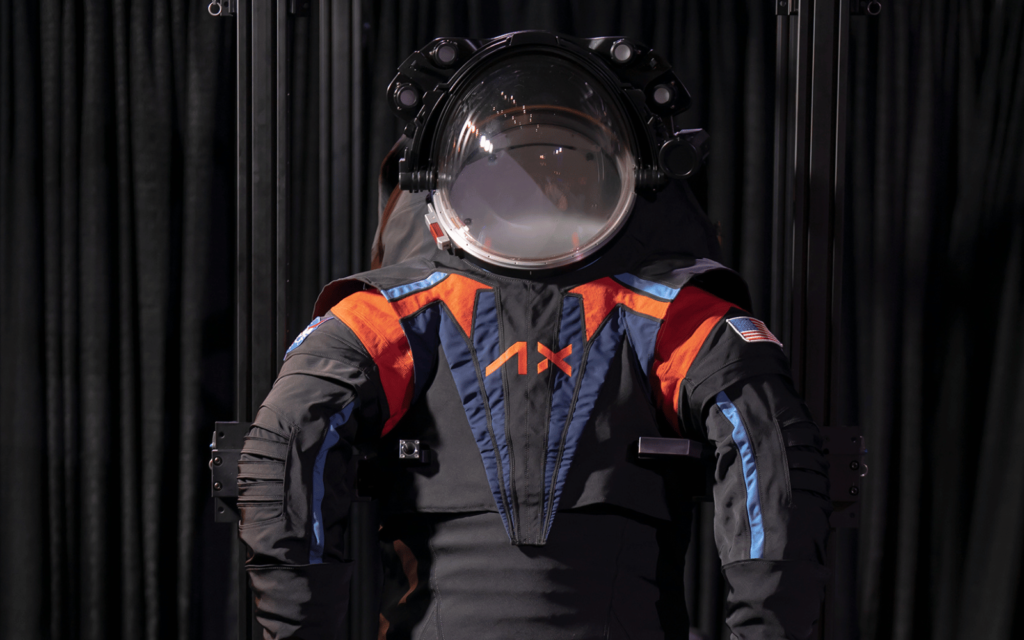They say you should dress for the job you want but NASA makes it really hard to get your hands on an authentic space suit. Hopefully, the newly-unveiled look for the astronauts about to embark on the Artemis III mission — scheduled for December 2025 — means that there will be some older gear for collectors. Why? No… no reason.
The space agency this week unveiled the new space suit, which is being made by Axiom Space. The colour you’re looking at here won’t actually be used by astronauts. That shade was developed by Esther Marquis, the costume designer for the show For All Mankind. The more traditional white suits will be used by lunar astronauts in 2025.
NASA’s new look
 It turns out, those suits aren’t white just because that’s NASA’s aesthetic. They actually look that way for space science reasons, in that white suits are more reflective and easier to cool. The astronauts bound for the lunar surface in a couple of years will wear the original colours, but they’ll have a few advantages over the older Apollo suits that were last used on the Moon.
It turns out, those suits aren’t white just because that’s NASA’s aesthetic. They actually look that way for space science reasons, in that white suits are more reflective and easier to cool. The astronauts bound for the lunar surface in a couple of years will wear the original colours, but they’ll have a few advantages over the older Apollo suits that were last used on the Moon.
These upgrades should seem obvious. The suit itself is smaller and easier to move in, which is what you want if you’re spending several days on an arid, airless rock. Two astronauts, including the first woman and first person of colour (the crew has yet to be announced), will spend 6.5 days on the lunar surface. That’s not a task to be taken lightly.
It’s remarkable how many different companies and entities are involved in the Artemis missions. SpaceX and Blue Origin are providing parts of the system. The United Launch Alliance is also involved, as are several smaller space companies in the US. Axiom Space is just one of these but they’ve been given an important task.
NASA administrator Bill Nelson said, “NASA’s partnership with Axiom is critical to landing astronauts on the Moon and continuing American leadership in space. Building on NASA’s years of research and expertise, Axiom’s next generation spacesuits will not only enable the first woman to walk on the Moon, but they will also open opportunities for more people to explore and conduct science on the Moon than ever before.”




